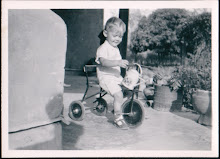
Kenya's President Mwai Kibaki won Thursday's closely-fought election, the electoral commission has declared. The announcement came after opposition leader Raila Odinga accused Mr Kibaki of electoral fraud and called for a full re-assessment of the results. Opposition protesters began riots in the capital Nairobi, just minutes after the announcement. The count was badly delayed, sparking violence in which at least 10 people are reported to have been killed. (BBC News, December 30th, 2007)
-------------------------------------------------
I have stopped in or traveled through Nairobi more times than any other city except Amsterdam but not as much in recent years. In mid-2002 I visited twice and was caught up in the pre-election drama which was to determine who was to succeed Daniel arap Moi after his long stint as leader. He was only Kenya's second president since independence in 1963, preceded by the father of the country "Mzee" Jomo Kenyatta.
For once the opposition parties put aside their differences and formed a coalition behind Mwai Kibaki which defeated the ruling party, KANU, for the first time ever. Moi's government had become corrupt and dictatorial and Mwai Kibaki was swept into power on an anti-corruption platform. He defeated Uhuru Kenyatta, the son of "Mzee" and a Moi appointee to parliament and the cabinet. There was a real sense of hope for change for the first time in a very long time. But that hope has again faded over the past five years.
I was again in Nairobi in March 2006 for a weeklong conference of African Christian leaders from almost 50 countries. During my time there police raided an independent TV station very early one morning and knocked it off the air, a station that happened to speak out against government wrongdoing. A cabinet member admitted to having ordered the raid and was not in the least apologetic. The BBC reports that Mwai's cabinet and advisors have been called the Mt. Kenya mafia.
Now five years later Kenyans again went to the polls, hoping again for change. More than 70% of eligible voters were expected to vote. Counting had been halted amidst charges of corruption and very high tensions. But the results were announced today and Raila Odinga, the son of Kenya's first vice-president Oginga Odinga, had been narrowly defeated after leaving the coalition he had joined with Mwai Kibaki in 2002 to defeat Moi.
My first visit to Nairobi was in 1967 during the leadership of Jomo Kenyatta while I was en route to college in the United States. As an eighteen year-old I had said good-bye to my parents and siblings in Lusaka as I and four other Zambian scholarship recipients boarded an East African Airways Comet 4 airliner headed for Nairobi with a stop in Dar Es Salaam. In Nairobi we were kindly hosted by the US Embassy as we joined scholarship recipients from East Africa and awaited a connecting flight to Europe and the USA (actually the route took us to Paris via Addis Ababa, Cairo, Athens, and Rome).
The ambassador's wife kindly offered to take us on an afternoon tour of the Nairobi Game Park which lies within sight of the downtown skyscrapers. Three of us squeezed with her into her VW Beetle and we took off in anticipation of seeing my first giraffe, zebra, and other animals. Disappointingly we drove for the longest time without seeing any animals, not even the ubiquitous impala - our host was so embarrassed. To add to that we had a flat tire while driving through a wooded area. We all got out and while one of us stood watch for dangerous animals, which we were now not so keen to see, the other two helped our hostess change the wheel.
Just as we were ready to think about leaving the park we noticed a cluster of vehicles across a plain; this would indicated some animal activity. So our hostess decided to forgo the road and cut across the grassy plain in a direct line. All of sudden we came to a body-shaking stop and the floor of the VW developed a concave curve to it. We had landed on a rock hidden in the grass. We all piled out, examined the situation, and simply lifted the vehicle off the rock and kept going. We eventually saw a group of cheetahs before heading for the exit gate with our hostess wondering out loud how she was going to tell her husband about the car.
On a couple of later visits to Nairobi I was to visit the park again and on one occasion actually watched a lion feeding on a buffalo kill right beside the road. It is indeed worth a visit, especially if one does not have time to go on a safari to one of Kenya's other famous parks.
More on Kenya on a later post.
rpk




 THE CHRISTMASES OF MY CHILDHOOD do not evoke many memories. However I do remember that on at least a couple of occasions we traveled forty miles from Kawama Mission, where we lived, south along the Luapula River Valley to Johnston Falls Mission (now Mambilima Mission) to join forces with our friends the Fords. Jim and Dorothy Ford and their four children had come to Johnston Falls from the UK sometime in the early '50's. Margaret, Patricia ('Patsy'), Angus, and Jonathan had become our closest childhood friends both geographically and relationally and we were of similar ages.
THE CHRISTMASES OF MY CHILDHOOD do not evoke many memories. However I do remember that on at least a couple of occasions we traveled forty miles from Kawama Mission, where we lived, south along the Luapula River Valley to Johnston Falls Mission (now Mambilima Mission) to join forces with our friends the Fords. Jim and Dorothy Ford and their four children had come to Johnston Falls from the UK sometime in the early '50's. Margaret, Patricia ('Patsy'), Angus, and Jonathan had become our closest childhood friends both geographically and relationally and we were of similar ages.


